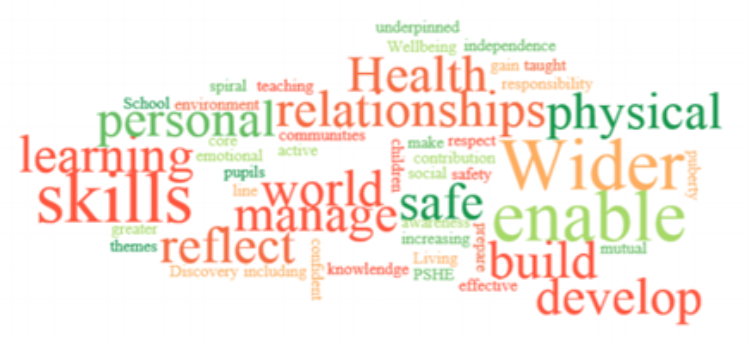PSHE/RSE

 Intent:
Intent:
Jigsaw provides a structured programme of personal development to nurture the ‘whole child’ and increase learning capacity, underpinned by mindfulness philosophy and practice.
Every Jigsaw lesson from Early Years to Year 6 offers opportunities for children’s spiritual, moral, social and cultural (SMSC) development, and this is clearly mapped and balanced across each year group (see map attached).
Jigsaw is designed to provide structured opportunities in every lesson to practise and enhance the five skills associated with the emotional literacy (self-awareness, social skills, empathy, motivation and managing feelings). At Hazel Leys Academy, we believe that these opportunities are vital for children’s development, their understanding of themselves and others and in increasing their capacity to learn.
 Implementation:
Implementation:
Jigsaw brings together Personal, Social, Health Education, emotional literacy, social skills and spiritual development in a comprehensive scheme of learning.
A lesson a week with the teaching resources included, helps teachers to focus on tailoring the lessons to their children’s needs and to enjoy building the relationship with their class, thus getting to know them better as unique human beings.
Teaching strategies are varied and are mindful of preferred learning styles and the need for differentiation.
Jigsaw is designed as a whole school approach, with all year groups working on the same theme (Puzzle) at the same time.
Jigsaw, is a progressive and spiral scheme of learning, carried out throughout the whole of the school. The progression Checker attached , shows clear progression through all year groups on all units of work. Planning ensures that learning from previous years is revisited and extended, adding new concepts, knowledge and skills, year on year.

 Impact:
Impact:
We measure the impact of our curriculum through the following methods:
- Assessing children’s understanding of topic linked vocabulary before and after the unit is taught.
- Summative assessment of pupil discussions about their learning.
- Interviewing the pupils about their learning (pupil voice).
- Monitoring, carried out by the subject leader
- Annual reporting of standards across the curriculum.
- Marking of written work in books.
- Class displays for PSHE of children’s work and the current unit of work.
- Through their PSHE learning, the children are able to make links between their own lives and those of others in their community and in the wider world, developing an understanding of other people’s personal, social, emotional, health together with the spiritual, moral and cultural similarities and difference.
